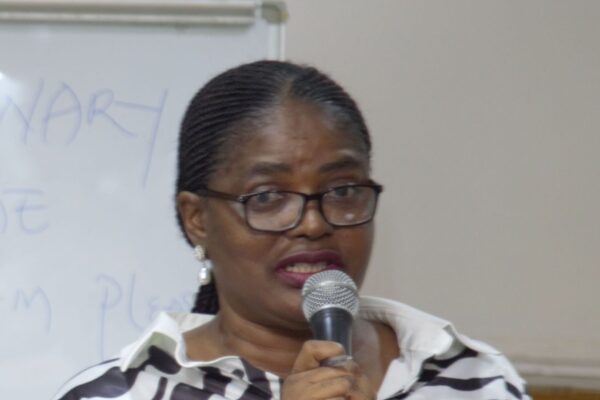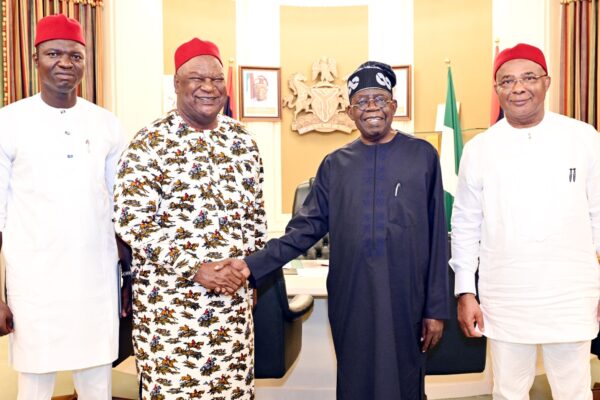Abuja – President Muhammadu Buhari, has said that Nigeria’s free trade zones have successfully raised over $45.7 billion in foreign direct investments, almost N1.5 trillion in local investments and created almost 400,000 direct jobs.
The President said this at the the Seventh Annual General Meeting of the Africa Economic Zones Organization, AEZO, hosted by Nigeria Export Processing Zone Authority, NEPZA, as part of activities to mark 30th anniversary of free trade zones in the country on Thursday in Abuja.
Represented by Minister of Niger Delta Affairs, Umana Okon Umana, Buhari said huge level of investment of over US$13 billion put into the ongoing Dangote Free Zone has attracted landmark infrastructural projects with potential to transform the Nigerian business landscape.
He said: “As most of you are aware, Free Zone Schemes in Nigeria date back to the promulgation of the Nigeria Export Processing Zone Decree in 1992. In 1996 this was expanded upon the creation of the Oil and Gas Free Zone Authority established by the Oil and Gas Export Free Zone Act.
“Currently, Export Processing Zones play a large role in the development of the industrial sector. The contributions of both the Nigeria Export Processing Zone Authority (NEPZA) and the Oil and Gas Free Zone Authority (OGFZA) to Nigeria’s economy have been significant.
“Free Zones have successfully created almost 400,000 direct jobs, raised over $45.7bn in foreign direct investments and almost N1.5tn in local investments.
“These numbers do not even take into consideration the huge levels of investment going into the Dangote Free Zone, the direct portion of which is over US$13billion. This zone has attracted landmark infrastructure projects that have the potential to transform the Nigerian business landscape.
“These projects include the newly commissioned deep-sea port and the Dangote refinery, expected to become the largest single-train facility of its kind in the world upon completion. Additionally, a Free Zone Enterprise has currently transitioned the country from being a net importer to a net exporter of fertilizer. Other significant projects include a mega oil and gas downstream manufacturing hub with dedicated seaport terminals focused on driving local manufacture of oil and gas derivatives for exports necessary for full participation in the Africa Continental Free Trade Agreement (AfCFTA).
The President further said that the Federal Government has taken some major steps to boost investors confidence in Nigeria’s free trade zones.
“For instance, improvements in inter-agency cooperation and collaboration has led to the birth of documents such as the Memorandum of Understanding between the Federal Inland Revenue Service (FIRS) and Free Zone. In the same vein, the Central Bank of Nigeria is updating Guidelines for Banking Operations in the Free Zones which will serve as a regulatory document geared to improve ease of operations within the zones. The Nigeria Customs Service, another key stakeholder, has also accepted to fully implement the Free Zones concession regarding imports and exports by Free Zone Enterprises into the Customs Territory.
“Additionally, the Directorate of State Security Service has collaborated with both authorities to train personnel of the Special Economic Zones Security Unit in areas such as economic intelligence management.
“Brilliant innovations like the Special Economic Zones Security give confidence to investors and reassure them of the protection of their assets and operations.
“The Special Economic Zones Institute, another great initiative, will serve as a learning centre for stakeholders on the rules and regulations guiding free zones operations while the Special Economic Zones Dispute Resolution Centre will minimize litigations arising from commercial dispute and transactions. I must also mention the coordinating role being played by the Nigeria Economic Zones Association as an advocate for good practice and umbrella body for all Free Zones investors in Nigeria,” he said.
On his part, President of the African Development Bank (AfDB), Akinwumi Adesina, said Africa’s wealth must no longer depend on exports of raw materials, but of finished value-added products, as the door to poverty is from export of raw materials while the highway to wealth is industrialization.
Adesina said the African continental Free Trade Area, ACFTA, is the continent’s best pathway to prosperity, adding that “To unlock it’s potential, however, we must not just simply trade; we must turn the zone into an industrial manufacturing zone with insuring of manufacturing in Africa.”
“The sector with the greatest potential for industrialization in Africa is agriculture. Africa has 65 per cent of the uncultivated arable land left to feed the world. Therefore, how Africa develops its agriculture will determine the future of food in the world. Across Africa, we must turn cocoa beans into chocolates, cotton into textile and garments and coffee beans into brewed coffee.
“That is why the African Development Bank is investing $25 billion in agriculture across the continent to transform the agricultural sector. The African Development Bank is invested in over $1 billion in the development of special agro-industrial processing zones that we call SAPZs in 18 countries to help to unlock Africa’s potential in food and agriculture.”
Also speaking, the Minister of Industry, Trade and Investment, Niyi Adebayo, said the Free Zones scheme in Nigeria has recorded significant milestones as it has given birth to landmark infrastructural projects that have the potential to completely transform the local and regional environments.
Adebayo noted that the recently-commissioned deep seaport in Lekki, Lagos will become a trading hub while the Dangote refinery will become the largest single trading facility of its kind in the world upon completion.
He said in order to attract foreign direct investment, a truly serious country must provide a truly enabling environment, stressing that government agencies be seen as a facilitator and ideally, as partners in progress, rather than seen as barriers.
In his remarks, the Managing Director/CEO of NEPZA, Prof Adesoji Adesogba, said Nigeria leveraged on the concept of the free trade zones scheme to offer enabling business environment that has so far attracted about 26 billion US dollars investment and about 625 enterprises operating within those enclaves.
“The Scheme has also within this period created about 150 direct jobs and an estimated 250,000 indirect jobs for our citizens. We hope to enlarge the employment opportunities when the Dangote refinery and the deep seaport becomes operational in a few months’ time.
“So far we have ensured the promotion of economic of scales which helps enterprises produce at lowest possible costs throughout parallel to sensitives and other support policies,” he said.
—————————————————————————————————————————————
Your help to our media platform will support the delivery of the independent journalism and broadcast the world needs. Support us by making any contribution. Your donation and support allows us to be completely focus, deeply investigative and independent. It also affords us the opportunity to produce more programmes online which is a platform universally utilised.
Thank you.
Please click link to make – DONATION










